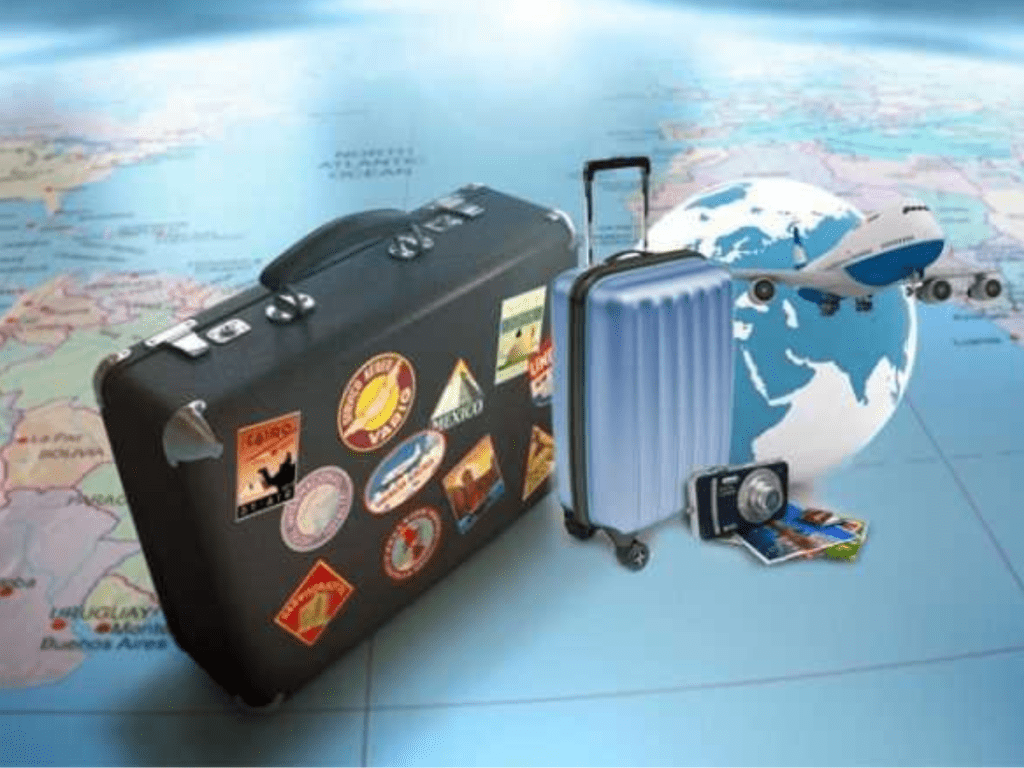Introduction
Traveling can be an exciting and enriching experience, but it often comes with unpredictable risks. Whether you’re going on a business trip, vacation, or adventure, the unexpected can always happen—delays, cancellations, or even personal emergencies can disrupt your travel plans. One of the most effective ways to protect yourself from these unexpected circumstances is through travel insurance, which provides coverage for trip interruptions, among other things.
Travel insurance, specifically the trip interruption coverage, ensures that you’re financially protected if something goes wrong during your travels. Whether it’s a medical emergency, a natural disaster, or an unforeseen event that causes you to cut your trip short, understanding how travel insurance protects you is vital for all travelers. This article will explore the benefits, coverage options, and scenarios in which travel insurance can help mitigate the financial loss and emotional stress caused by trip interruptions.
Understanding Trip Interruption Coverage
Before diving into the specifics of how travel insurance can help with trip interruptions, it’s essential to understand what trip interruption coverage is. Trip interruption coverage is a component of travel insurance that reimburses you for pre-paid, non-refundable expenses if your trip is interrupted or cut short due to specific, covered reasons.
For example, if you need to cut your vacation short due to a family emergency or if your return flight is delayed for an extended period, trip interruption coverage can help cover the costs associated with the interruption. This may include reimbursing you for unused travel arrangements (such as accommodation and flights) and extra expenses incurred due to the interruption, like additional accommodation or transportation costs.
Common Reasons for Trip Interruptions
Several reasons can lead to a trip interruption, and while each insurance policy may vary slightly, most travel insurance policies cover the following:
- Medical Emergencies: One of the most common reasons for trip interruptions is medical emergencies. Whether you fall ill or get injured during your trip, a sudden health issue may require you to cancel or shorten your journey. Travel insurance often includes coverage for medical emergencies that might require evacuation or treatment during your travels.
- Family Emergencies: Unexpected situations involving close family members, such as the death or severe illness of a loved one, may require you to cut your trip short and return home earlier than planned. Travel insurance can help reimburse you for the expenses incurred as a result.
- Natural Disasters: Natural disasters such as hurricanes, earthquakes, floods, or wildfires can disrupt travel plans by affecting flight schedules, hotel availability, or even transportation routes. If you’re forced to alter or cut short your trip due to a natural disaster, your travel insurance might help recover lost costs.
- Flight Cancellations and Delays: Even the best-laid plans can go awry due to flight cancellations or long delays. If a delayed or canceled flight causes you to miss connections, miss out on a day of your vacation, or need to extend your stay, travel insurance can help cover some of the additional costs incurred.
- Terrorist Attacks: In the unfortunate event of a terrorist attack occurring in the destination you planned to visit, it may no longer be safe or feasible to proceed with your trip. If you are forced to cancel or interrupt your travel plans because of this, trip interruption coverage may provide reimbursement for your expenses.
- Legal Issues: Legal issues such as arrest or detention may cause an interruption in your travels, especially if you are required to stay longer in your destination or have to return home quickly to handle legal matters.
- Transportation Strikes: Transportation strikes, such as those involving airlines, trains, or buses, can affect your travel schedule and cause significant delays. In some cases, you might have to cancel or change your plans due to the strike’s impact, and travel insurance can help recover costs related to this interruption.
- Lost or Stolen Baggage: While luggage delay and loss are often addressed through baggage insurance, if your belongings are lost or stolen and significantly affect your ability to continue your trip, travel insurance may cover some of the costs associated with recovering your trip.
Key Features of Trip Interruption Coverage
When purchasing travel insurance, it’s important to understand the specific features and exclusions that apply to trip interruption coverage. Here are some of the critical elements you need to know:
- Eligibility for Coverage: Coverage typically applies to interruptions caused by unforeseen circumstances, but there are usually exclusions as well. For instance, interruptions due to pre-existing medical conditions may not be covered unless you’ve purchased additional coverage. It’s essential to read the fine print and understand what qualifies for reimbursement.
- Reimbursement Limits: Most policies will have a cap on how much they will reimburse for trip interruptions. The amount can vary depending on the policy, but it’s important to know that some policies cover only a portion of the non-refundable expenses.
- Non-Refundable Expenses: This refers to expenses that you have already paid for but cannot recover because your trip is interrupted. Common examples include pre-paid hotel reservations, airline tickets, tour packages, and other travel-related bookings.
- Additional Expenses: Travel insurance for trip interruption can cover additional expenses that may arise due to the interruption. This could include accommodations, meals, local transportation, and even a return flight home if necessary.
- Exclusions and Limitations: Like all insurance policies, trip interruption coverage has exclusions. These may include events like self-inflicted injuries, travel to regions with travel warnings, or certain types of natural disasters. It’s crucial to review the exclusions in detail to avoid surprises when filing a claim.
Benefits of Travel Insurance for Trip Interruptions
The benefits of having travel insurance that covers trip interruptions are numerous and crucial for the modern traveler. Here are some key advantages:
- Financial Protection: One of the primary benefits is financial protection. Travel insurance helps safeguard you from losing significant amounts of money due to trip cancellations, interruptions, or delays. Without insurance, you would be forced to bear the financial burden of non-refundable travel expenses.
- Peace of Mind: Knowing that you have coverage for unforeseen interruptions provides peace of mind. This reassurance allows you to focus on enjoying your trip, rather than worrying about the “what-ifs.” Travel insurance ensures that you’re not left scrambling for money or solutions when the unexpected happens.
- Access to 24/7 Assistance: Many travel insurance policies include 24/7 emergency assistance services, offering you expert advice and support during travel disruptions. Whether it’s helping you find an alternative flight or providing assistance with medical emergencies, travel insurance provides access to valuable resources.
- Coverage for Travel-Related Risks: Trip interruption insurance typically covers a wide range of risks that could interfere with your plans. From missed connections to natural disasters, having insurance can protect you against many of the situations that might cause major disruptions in your travels.
- Flexibility in Handling Changes: If you need to change your itinerary because of a covered event, having travel insurance can ease the process. Insurance coverage for trip interruption can allow you to rebook flights, find new accommodations, or rearrange your schedule without facing significant out-of-pocket expenses.
Choosing the Right Travel Insurance for Trip Interruptions
Not all travel insurance policies are created equal, so it’s important to choose one that suits your needs. Here are a few tips for selecting the right coverage:
- Compare Policies: Not all policies cover the same risks, so it’s important to compare different options to ensure you get the coverage you need for trip interruptions. Look at what’s included in each policy and any exclusions or limitations.
- Check the Coverage Limits: Ensure that the policy offers adequate coverage for your trip. Look for policies with high coverage limits, especially if you’ve pre-paid large sums for your trip. You should also pay attention to the reimbursement limits for interruption-related expenses.
- Consider Additional Coverage: Some policies offer extra coverage for specific situations, such as medical emergencies or pre-existing conditions. Consider adding supplemental coverage to your base policy if you think it’s necessary for your travel plans.
- Read the Terms and Conditions: Before purchasing, thoroughly read the policy’s terms and conditions to ensure that the trip interruption coverage applies to the types of interruptions you might face during your trip. This can prevent any surprises when you need to file a claim.
- Review Customer Service and Support: When an interruption occurs, you’ll need assistance quickly. Look for travel insurance companies that offer excellent customer service and 24/7 support, as this can make a significant difference when you’re dealing with a travel emergency.
Conclusion
Travel insurance that includes trip interruption coverage is an essential tool for modern travelers. Whether you’re dealing with a medical emergency, a natural disaster, or any other unforeseen event that disrupts your plans, having the right insurance in place ensures that you’re protected financially. The peace of mind that comes with knowing you won’t bear the full cost of a disrupted trip is invaluable, allowing you to focus on what really matters—your safety and well-being.
By understanding the various aspects of trip interruption coverage, you can make informed decisions and select the right policy for your needs. As travel risks continue to evolve, having the protection of travel insurance is one of the best ways to safeguard your travel investment and ensure a smooth journey, even when the unexpected occurs.

